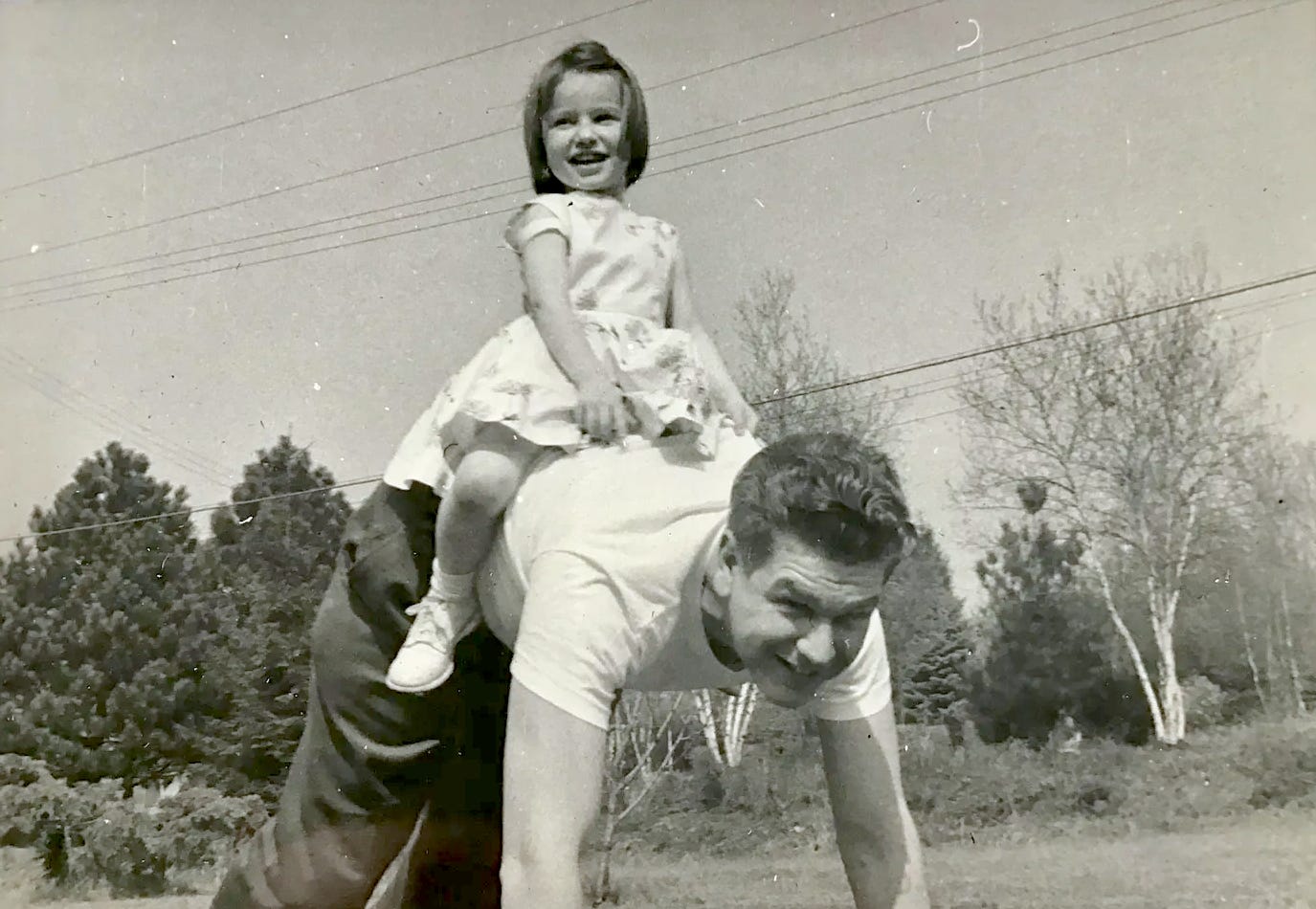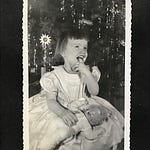The Escape
I’ll tell you one of my clearest memories of childhood, Kara. It’s my mother and me sitting side by side on the couch - maybe in this very room where you sit - leafing through glossy home design and fashion magazines, and longing. It started by feeling joyful, but always ended in a deadening of the soul.
There was no question that my mother and I would never be able to afford any of the things we loved. My father was a perfect duplication of her father, a man who promised and could not deliver. My mother was primed to equate longing with love. Even if my father did find a job for longer than a few months. Even if the stock market graphs he labored over in the basement turned into gold. Poverty and frugality was an integral part of the identity I inherited from both sides of my lineage, which we all found it almost impossible to give up.
So I avoided magazine longing as much as I could in later life, like you would eating too much sugar or smoking just that one cigarette. Only late in my illness did it seem like a viable escape from the pain in the present. You and I started cutting things out of magazines at night on the big curved velvet couch. This was when I still let you use your hands for other activities besides rubbing my feet that lay in your lap. You loved moving the shears over the lines around objects, and were saving your cuttings in a box for future collages. Whereas I was indulging in a longing for a future. I was saving cuttings for my Ideas folder: a shed turned teahouse, a future pergola, the new plants I would put in come spring. My great grandfather’s house was all that was left of our family. It was all I had ever nearly accomplished, and what I needed to leave behind for you.
I didn’t realize that you would value my papers even more than the house. But I shouldn’t say that. I gave you my family house so that you would feel safe enough to follow your spirit. And here we are. I can explain a lot to you about my family, but you will also have to fill in gaps.
My mother saved evidence of her father in boxes of letters she left behind in the attic, which I culled after her death. What I deemed important enough to save is catalogued by year. You can see that it is my obvious organization in the neat packets, separated into categories, labelled by year, and tied with delicate satin ribbon.
You might be the last person to untie and read these, Kara.
Both of my parents had vanished fathers who left their wives and children to fend for themselves. It was surely one of the things that drew my wounded parents together. I suspect that my mother spent her life waiting for what she had lost to come walking back through the front door. And in walked my father, a boy with a missing father, raised by two tough women. It was perfect symmetry that he found my mother. Having each suffered the trauma and shame of that paternal absence, it was a nearly impossible dilemma when they decided to become parents. It was vital to both of their egos to raise a child properly, yet they had no idea and no practical training in how to do it. Ah, the revenge on all of their good intentions was a precocious and troublesome child.
My mother saved anything with her father’s signature on it, like his notice of enrollment in the army in 1917, three of his creased and soiled chauffeur licenses from the early 1930’s, and his New York City hack badge, laminated and yellowed with age, wrapped on the back and sides with tin. In the black and white photo he’s clean-shaven in a cap and a worn wool overcoat with slouching shoulders. His eyes look desolate, innocent as a boy’s, but also hang-dogged, and guilty of something. Maybe of what he had done in the first great war, of coming home addicted to heroin, and of being poor. He looks very frightened.
Do you recognize my bent nose in his nose, Kara? His nose went directly to my mother who handed it off to me.
In the winter of 1937 my grandfather, Frank Mertham Smith, boarded a Greyhound Bus in Newark, NJ, bound for Miami Beach. It was too late at night for him to say goodbye to his young daughters, my mother Judy, and her sister Grace. But someone saw him off with just enough food and ‘medicine’ to keep him for the journey. His parents and sister weren’t sure he would make it all the way down since he had a habit of disappearing.
After his three-day bus ride south my grandfather must have stood in his hotel room and been torn between sending a note back to the girls in Newark straightaway, and the blue-green water calling to him through the window. His girls were probably just getting up and lighting the kitchen stove in the cold at this hour of the morning. He would suggest that my mother, Judy, sleep on his old couch in the kitchen from now on, where there was less draft.
There was never any relief for too long. He needed morphine. Soon enough the chills, nausea, and the heated dreams would begin. So while he was still well enough, before the onset of the shakes that were starting as a tremor in his hand, he decided to walk across the two-lane road, take off his hot shoes and socks, and just step into the water.
“My Darling Judy Sweet Sweetheart & Little Honey Lady Grace…” he wrote to them on the stationary from The Fairfax Hotel, which had little color pictures of the front overlooking beautiful Biscayne Bay, and which boasted a bath and telephone in every single room. He told the girls he had ridden all the way down without stopping off; that they should tell their mother he would send money as soon as he got some, and then they could all come down to Miami to live. He told them that tomorrow he was off to the “Farm.”
He must have sworn to himself that first day, as he would in dozens of letters from different hotels through the years, that this was a new start. At the farm they would teach him where he’d gone wrong, and why he did the things he did, when all the time he didn’t really want to. And after the first week of hell from his detox he would be well enough to take his badge downtown and see if they didn’t need a qualified chauffeur in Miami.
But by 1938, a year later, he suggests they try and forget why they don’t see him, and think of more pleasant things instead. He was back on the same ‘farm’ he had been the year before. He had lost his job the first of the year, but as soon as he got another, he told them things would be different.
“My darlings, someday when you kiddies are older I will explain ‘things’ to you, which you will benefit by. As a father, I’m pretty much a flop, but if I had my way you kids would have everything your hearts desire.”
On a plain white postcard he wrote:
“My Darlings, just a line to let you know I am still trying hard to get some money so we can go places. Things are breaking kind of bad, but it can’t keep up forever. You kids just keep your chin up and everything will turn out alright…”
In 1939 he wondered if my mother was still comfortable on the couch next to the stove in the kitchen. He couldn’t remember what else he could have sold in the pawnshop in New Jersey unless it was her mother’s cameo pin.
He assured her: “Sweetheart, you don’t miss Daddy any more than Daddy misses you. You are my ‘Sweet Obsession’.”













